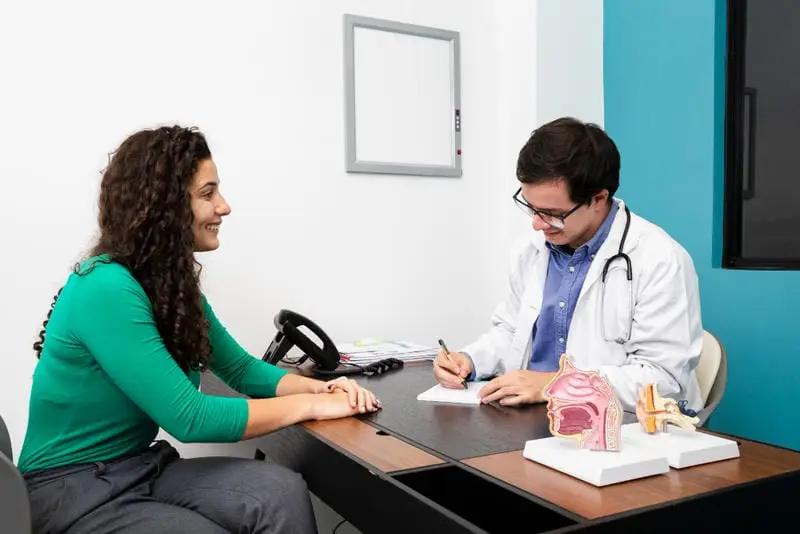- Published on: Sep 20, 2025
- 2 minute read
- By: Secondmedic Expert
Stigma Of Depression In Indian Families: Breaking The Silence
Introduction
Depression is one of the most common mental health disorders worldwide. In India, it affects an estimated 56 million people, yet very few receive treatment. Why? One of the biggest barriers is stigma within families and society. For many Indians, depression is not discussed openly. Instead, it is whispered about, ignored, or dismissed as laziness, weakness, or lack of faith. This stigma prevents countless individuals from seeking the help they desperately need.
This blog explores the stigma of depression in Indian families, the data that highlights the problem, and practical steps to break the silence.
The Scale of the Problem
-
According to the National Mental Health Survey (2015–16), nearly 14% of India’s population suffers from some form of mental disorder, with depression being among the most common.
-
Yet, the treatment gap—the proportion of people who need care but don’t receive it—ranges between 70% and 92% for depression and other mental disorders.
-
A WHO survey ranked India among the top 10 countries with highest mental health stigma.
-
In a 2022 survey across urban and rural India, 57% of respondents admitted they would hesitate to marry someone with a history of depression, showing stigma affects not just health but social life.
Why Is Depression Stigmatized in Indian Families?
-
Cultural Beliefs
Many still believe depression is a “Western problem” or a result of weak character. In some families, it’s seen as a spiritual failing or bad karma.
-
Fear of Social Judgment
Families worry about what relatives, neighbors, or society will think. Mental illness is often considered a “family dishonor.”
-
Lack of Awareness
Depression symptoms—like fatigue, lack of concentration, sleep problems—are often misunderstood as laziness or disinterest.
-
Marriage & Career Concerns
Families fear that acknowledging depression will affect marriage prospects or job opportunities for their children.
-
Generational Gap
Older generations may not recognize depression as an illness, while younger family members are more open to acknowledging it.
Real Stories from Surveys
-
In a Delhi-based survey (NIMHANS, 2019), 40% of respondents believed mental illness was a punishment from God.
-
In a Mumbai corporate survey (2021), 46% of employees said they wouldn’t disclose depression to their manager due to stigma.
-
In rural Uttar Pradesh, a field study found 70% of families sought faith healers before consulting a psychiatrist.
These stories reveal how stigma delays medical treatment.
Consequences of Stigma
-
Delayed Treatment: Families discourage psychiatric help, leading to worsening symptoms.
-
Isolation: Patients often hide their struggles to avoid judgment.
-
Increased Suicide Risk: India has one of the world’s highest suicide rates — 164,000 suicides in 2021, many linked to untreated depression.
-
Burden on Families: Silence adds emotional and financial strain to households.
Breaking the Stigma: What Families Can Do
-
Treat Depression as an Illness
Just like diabetes or heart disease, depression requires medical care. Families must accept it is not a weakness.
-
Encourage Open Conversations
Let family members talk about their struggles without fear of judgment.
-
Seek Professional Help Early
Psychiatrists, psychologists, and counselors can provide effective treatment. Family support in attending appointments is critical.
-
Use Reliable Information Sources
Government programs (like the National Mental Health Programme) and NGOs (like The Live Love Laugh Foundation) run awareness campaigns.
-
Promote Mental Health Literacy
Schools, workplaces, and community groups can educate families about depression.
Role of Awareness Campaigns
-
Bollywood and sports stars like Deepika Padukone and Virat Kohli have spoken about mental health, helping normalize the conversation.
-
Campaigns like “It’s Okay to Talk” and #SayNoToStigma have reached millions, especially younger audiences.
-
But surveys still show gaps: over 50% of Indians still hesitate to seek psychiatric care.
The Way Forward
-
Policy Support: The Mental Healthcare Act (2017) recognizes depression treatment as a right. But families must support utilization.
-
Community Involvement: Local health workers (ASHA, Anganwadi) should be trained to spread awareness.
-
Integrating with Primary Care: Depression screening should be routine for patients with diabetes, hypertension, or heart disease.
Conclusion & Call to Action
The stigma of depression in Indian families is a heavy burden — but it can be overcome. Open dialogue, early help-seeking, and treating depression as a medical condition can transform lives.
If you or a loved one is struggling, don’t suffer in silence. Talk to a doctor, book a mental health consultation with SecondMedic, or join a support group today. Remember, asking for help is not weakness—it is strength.
Read FAQs
A. Because of cultural beliefs equating mental illness with weakness, lack of faith, or family dishonor. Many also believe depression is not a “real illness.”
A. The National Mental Health Survey (2015–16) reported that nearly 60% of people linked mental illness to stigma. Another WHO-backed survey found India had one of the highest mental health stigma rates globally.
A. Stigma delays treatment—India has a treatment gap of 70–92% for depression. Many families discourage seeking psychiatric help due to fear of “what others will say.”
A. It causes social isolation, worsens symptoms, increases risk of self-harm, and affects education, employment, and marriage prospects.
A. Encourage open conversations, seek professional help early, participate in awareness programs, and treat depression like any other health condition.









